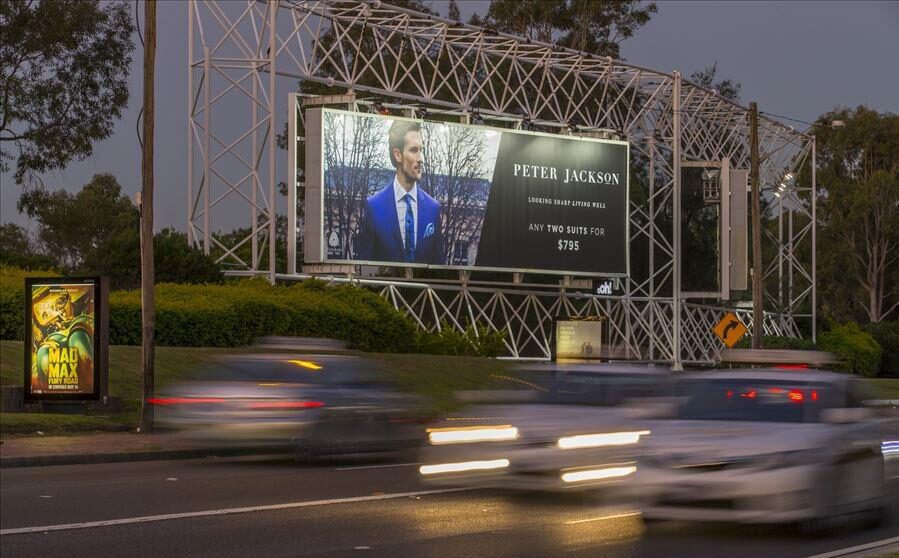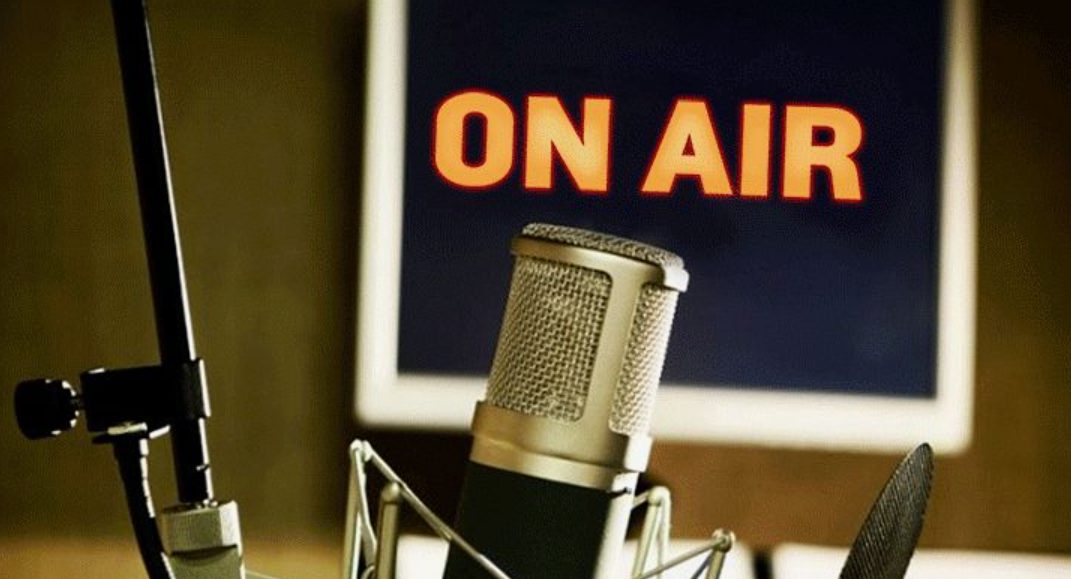If you’ve ever driven down a busy highway or walked through a bustling city, chances are you’ve seen your fair share of billboards. They’re everywhere: larger-than-life, colourful, and designed to grab your attention in mere seconds. But in an age dominated by digital ads and social media marketing, is billboard advertising effective anymore?
In this blog, we dive into the enduring impact, benefits, challenges, and strategies to measure the effectiveness of billboard advertising and see if they are still worth your marketing dollars.
The Enduring Impact of Billboard Advertising
Billboards have been around for over a century, and despite the evolution of marketing, they still hold a special place in the advertising world. There’s something almost nostalgic yet incredibly powerful about a well-placed billboard. They’re not just relics of the past; they’ve adapted and continue to make an impact today.
– A Glimpse into Billboard History
Billboard advertising dates back to the 1800s when large posters started popping up in urban areas. These giant advertisements became popular for their ability to reach a massive audience without any extra effort from the consumer. People don’t have to click, swipe, or scroll—billboards are just there, passively delivering a message. And, believe it or not, this passive engagement still has a unique charm.
– Why They Work: Grabbing Attention in High-Traffic Areas
One of the primary benefits of advertising on billboards is their strategic placement. You can’t ignore a massive ad looming over a busy freeway or a vibrant graphic in a crowded city square. Billboards are effective at creating instant brand recognition because they reach people during moments of high visibility. For example, if you’re stuck in traffic and there’s a billboard advertising a nearby restaurant, chances are, you’ll remember it. The effectiveness of billboards lies in their sheer presence—they don’t rely on people searching for information; they present the information boldly, almost demanding to be noticed.
Key Benefits of Billboard Advertising
Let’s dive into some of the major reasons why billboards continue to be an essential part of many companies’ marketing strategies.
1. Boosting Brand Visibility and Recall
One undeniable advantage of billboard advertising is the sheer level of exposure it offers. Picture this: a catchy slogan, a memorable image, and a bold logo displayed 24/7 in a high-traffic area. Even if people only glance at it, repeated exposure helps reinforce brand awareness. Research shows that the more often people see an ad, the more likely they are to remember it. This is where billboard advertising effectiveness really shines.
If you’ve ever had a brand or slogan stuck in your head after seeing a billboard multiple times, you’ve experienced the power of this medium. The constant visibility helps brands cement their presence in people’s minds, making it easier for consumers to recall them when they are ready to make a purchase.
2. Reaching Local Audiences with Precision
Another huge perk of billboard advertising is that it can be tailored to a local audience. For instance, if a new coffee shop opens in Sydney, placing a billboard in Sydney near popular streets or transportation hubs can drive interest and foot traffic. Billboards are particularly effective for local businesses that want to generate awareness and connect with people in their vicinity. Unlike digital ads that may reach people across the world (many of whom may never become customers), billboards ensure that you’re reaching a geographically relevant audience.
For businesses offering services like real estate, restaurants, or auto repair, having a billboard advertising near me strategy can be extremely beneficial. People are more likely to engage with an ad if it’s relevant to their immediate needs or location.
3. 24/7 Exposure Without Breaks
Unlike TV or online ads, which can be skipped, ignored, or blocked, billboards offer continuous exposure. They’re working for you around the clock. This uninterrupted visibility ensures that your brand gets consistent exposure, no matter the time of day. For people who pass by regularly, this repeated messaging can significantly enhance recall. Think about your daily commute—if you see the same billboard every morning, it becomes part of your routine, and the brand message gets embedded in your memory.
4. Cost-Effectiveness in the Long Run
While some may argue that billboard advertising comes with a hefty price tag, it’s actually quite cost-effective when you think about the number of impressions a single billboard can generate over a month. Sure, premium locations may come with higher costs, but compared to other traditional advertising mediums like TV or radio, a well-placed billboard can offer a significant return on investment. Plus, with the right creative approach, effective billboard campaigns can generate long-term benefits. Once a billboard is up, there are no additional costs involved, making it a one-time investment with ongoing returns.
5. Emotional Impact Through Creativity
Billboards are a playground for creativity. Because they are visual and often have just a few seconds to capture someone’s attention, advertisers have to think outside the box to make an impact. Some of the most effective billboard campaigns are those that use humour, striking visuals, or clever wordplay. The right creative approach can turn a simple ad into a viral sensation, earning the brand free publicity and recognition beyond just the people who see the billboard.
Challenges of Using Billboards
As appealing as billboards are, they come with their own set of challenges. While they are powerful tools, they are not without limitations.
1. High Costs for Premium Locations
While billboards are cost-effective in terms of impressions, securing a top-tier location can be expensive. If you want your billboard to be in a prime spot, like in the heart of a bustling city or on a high-traffic freeway, expect to pay a premium. For smaller businesses, this might not be feasible. Even though the costs are justified by the visibility they provide, the investment can be daunting for startups or companies with limited marketing budgets.
2. Measuring Direct ROI Is Tricky
One of the biggest hurdles marketers face is understanding the direct impact of a billboard. Unlike digital ads, where you can track clicks, conversions, and engagement metrics, a billboard’s effectiveness is harder to quantify. People may see your ad, but there’s no easy way to tell how many of those views translate into sales. This is where the question of how to measure effectiveness of billboard advertising becomes crucial.
3. Limited Engagement Opportunities
Another downside is that billboards don’t offer interactive or engaging experiences. In today’s digital world, where people are used to personalised and clickable content, a static billboard may seem old-school. Since there is no direct interaction, the audience can’t “click” to learn more.
Moreover, because billboards are designed for people on the move, advertisers have a limited amount of time to convey their message—typically just a few seconds. If the message is too complex or the design too cluttered, it’s easy for the ad to be missed or misunderstood.
How to Measure Billboard Advertising Effectiveness
So, how can you ensure that your billboard investment is worthwhile? Let’s explore some strategies.
1. Use Technology to Your Advantage
Modern billboards have embraced technology, making it easier to measure impact. For example, you can use geo-targeting data to understand traffic patterns around your billboard. By analysing this data, you can estimate how many people view your ad daily. Some companies even use mobile data to track how many people visit a location after seeing a billboard.
2. QR Codes and Custom URLs
Adding QR codes or unique URLs to your billboard is a simple way to track engagement. If someone scans the QR code or visits the custom link, you can directly attribute that action to your billboard. While this won’t give you the full picture, it’s a good starting point for understanding engagement.
3. Conduct Surveys and Gather Feedback
Sometimes, the old-school way is still the best way. Conducting customer surveys can offer insights into how people heard about your business. If a significant number of respondents mention your billboard, you can consider it a success. Combining qualitative feedback with quantitative data is often the best approach to understanding the effectiveness of billboard advertising.
4. Track Sales and Foot Traffic
For local businesses, monitoring sales or foot traffic before and after launching a billboard campaign can reveal its impact. If you notice a surge in in-store visits or sales, your billboard might be playing a crucial role. Businesses with billboard advertising near me strategies often rely on this method to gauge success.
Conclusion: Are Billboards Worth It?
– Weighing the Pros and Cons
Billboard advertising certainly has its advantages and challenges. On one hand, the visibility and brand recall benefits are hard to match, especially for local businesses. A strategically placed billboard could work wonders for a brand looking to make a mark within a specified area. On the other hand, the high costs and difficulties in measuring direct ROI make it less appealing for companies with limited marketing budgets.
– When Are Billboards a Good Investment?
Ultimately, the effectiveness of billboards depends on your marketing goals and budget. If you’re a local business wanting to create a buzz or a national brand looking to reinforce your presence, billboards are definitely worth considering. Running a successful billboard campaign requires creativity, strategic placement, and a method for measuring impact.
So, in conclusion, is billboard advertising effective? The answer is both yes and no. They’re still incredibly impactful, especially when used thoughtfully, but they’re not for everyone. As with any marketing tactic, understanding your audience and measuring your results will be the key to unlocking the full potential of billboard advertising.
Are you planning to launch a billboard advertising campaign? Contact us at The Media Planning Agency to discuss effective strategy.



